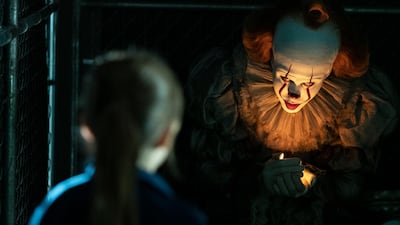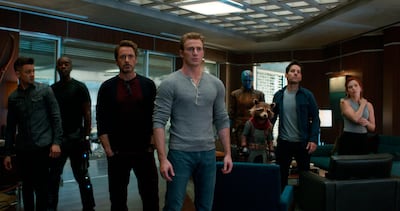While it's said you should never judge a book by its cover, it doesn't seem to be so bad to dismiss a movie because of its running time. That is especially true nowadays, with the finger-tip accessibility of streaming services meaning the allure of watching a tight 90-minute flick while sprawled out on your sofa is always going to be preferable to going to the cinema to absorb a two-and-a-half hour epic that requires your full concentration.
While the dark comfort of the cinema and the immersive experience it provides has always been the perfect habitat in which to watch longer films, it is still surprising how many movies this year have had extremely long running times, with several even surpassing the two-and-a-half-hour mark. But film-goers won't go to the cinema for any long film. Analysts believe the pulling power of directors such as Quentin Tarantino, Martin Scorsese or Christopher Nolan, and their undeniable cinematic prowess, mean audiences are more willing to sit still for longer. That is quite a feat in the age of streaming.
Are long movies back in fashion?
The change in viewing habits, the threat of the internet and videogames, and the confirmation that television is now a bona-fide rival to cinema mean that more people need a good reason to leave the comfort of their homes, travel to a cinema and pay ever-increasing ticket prices. Longer movies that legitimately require an increased running time are providing people with that reason and in recent months studios have released several that have appealed to mass audiences.
The most successful was undoubtedly the three-hour-and-one-minute superhero epic Avengers: Endgame, which overcame the pre-release debates about when to have a bathroom break to take in $2.8 billion (Dh10.3bn) and become the highest-grossing film of all time. Not only did Disney's marketing campaign do an incredible job of insisting that people had to see Endgame immediately so as to avoid the film's various spoilers, but it was billed as the farewell for the original Avengers. After the heartache of Infinity War's conclusion, viewers also knew they'd experience some kind of catharsis, which would be delivered in the always fun and entertaining style that Marvel has perfected over the course of 22 films in 11 years.
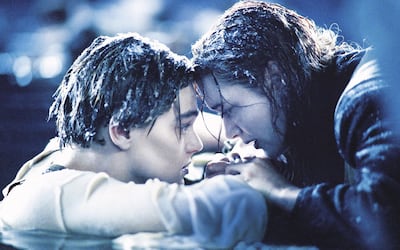
Two months after Endgame, audiences flocked to see all two hours and 41 minutes of Tarantino's Once Upon Time In Hollywood. They weren't only drawn to the pairing of Leonardo DiCaprio and Brad Pitt – they also knew that Tarantino has proven throughout his career to be a master storyteller who delivers flat-out entertainment that demands to be experienced on the biggest screen possible.
Meanwhile, all 147 minutes of Midsommar, Ari Aster's critically acclaimed follow-up to Hereditary, proved to be so appealing to both cinephiles and horror fans that distributors A24 even released a 171-minute-long director's cut last month. There's more to come, too, as Scorsese will eclipse those epics when all 210 minutes of The Irishman is given its premiere at the New York Film Festival at the end of the month.
Why do directors make such long films?
Shawn Robbins, chief analyst at Box Office Pro, says this is evidence that established directors are being given the creative freedom they desire from studios. "If [Marvel president] Kevin Feige, Tarantino, Scorsese, Nolan or J J Abrams go to a studio and say, 'I need this movie to be 150 minutes long', or 'I want this movie to be two hours tops', the odds are they'll get their wish because they have a reputation for understanding the audience, knowing what will work, and succeeding at the box office."
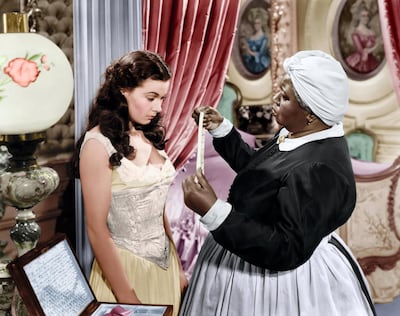
Box office records show that studios are right to put their faith in longer films, too, because, when they're done right, a mammoth movie has much more potential to explode into an event picture that everyone the world over simply has to see. In 1939, Gone With The Wind and its gargantuan 221-minute running time became the highest-grossing movie of all time. It was surpassed in 1965 by The Sound Of Music (174 minutes), only for 1972's The Godfather (177 minutes) to take the crown.
More recently, James Cameron's 1997 film Titanic (195 minutes) and his 2009 movie Avatar (161 minutes) reigned supreme until being toppled by Iron Man, Captain America and the rest of their superhero buddies at Marvel.
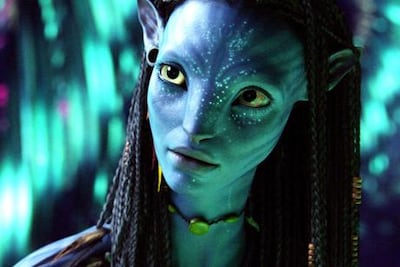
Despite the growing threat of other media and technology, this trend has shown no signs of abating. At 135 minutes long, 2015's Star Wars: The Force Awakens has the shortest running time of the past five highest-grossing films of the year, with Endgame likely to remain the longest film of the year.
But a lengthy running time doesn't always pay off.
Audiences won't sit through just any long film
This month, both It Chapter 2 and The Goldfinch showed the risk of releasing a lengthy film. It Chapter 2 came in at 170 minutes, while John Crowley's adaptation of Donna Tartt's 784-page, 2014 Pulitzer Prize-winning novel The Goldfinch eventually came to an end after 149 minutes.
Both were criticised for being unnecessarily long and while It Chapter 2 made an impressive $91 million (Dh334.2m) at the US box office in its opening weekend, it was still $30m less than part one's opening weekend haul.
Meanwhile, The Goldfinch has been an unmitigated disaster for Warner Bros, making less than $3m at the US box office on its opening weekend – from a $45m budget – as people were put off by the thought of having to sit through a weighty, emotional and quite obviously pretentious drama for such a long time.
But while Robbins admits that a film's run time "may be important on some level", he says "content is ultimately king". So if Hollywood studios decide to put their faith in longer films, they have to make sure the story is substantial enough to carry it. Otherwise, as The Goldfinch is proving, audiences will immediately be put off and turn elsewhere for entertainment.
